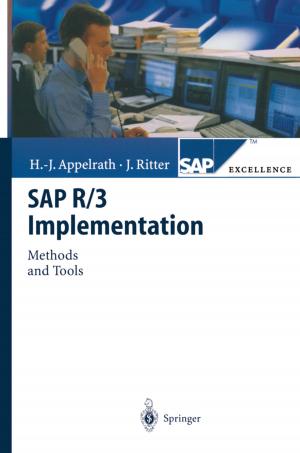Flood Response and Crisis Management in Western Europe
A Comparative Analysis
Nonfiction, Science & Nature, Science, Earth Sciences, Geology| Author: | ISBN: | 9783642719974 | |
| Publisher: | Springer Berlin Heidelberg | Publication: | December 6, 2012 |
| Imprint: | Springer | Language: | English |
| Author: | |
| ISBN: | 9783642719974 |
| Publisher: | Springer Berlin Heidelberg |
| Publication: | December 6, 2012 |
| Imprint: | Springer |
| Language: | English |
Throughout the last 20 years, the study of disasters has developed into a well respected body of know ledge in the social sciences. Disaster research has found its way to several disciplines and it has been remarkably receptive to multi and interdisciplinary impulses. Many disaster studies show how important and stimulating it is to explore events and developments which reach beyond the usual business of the social and political fabric. There. is quite a difference between the daily routines of social and political life, and the upheaval, stress, and shock of a life-threatening danger which may fall upon society. Even when the danger does not materialize to the fullest and society gets off with a fright, the population as well as the authorities may experience demanding situations and critical moments which ask for an effective and quick response. Although the study of disasters is in steady progress, there still remains a lot to be done. One of the blind spots in disaster research continues to be cross national knowledge of disasters and disaster management. Certainly, during the last decade a number of encouraging efforts have been made to promote a more international perspective in disaster management. But as disasters and crises will increasingly feature transnational and even global characteristics, in that sense disaster and crisis research are lagging behind. Students of disasters and crises cannot limit themselves to typically domestic and local events.
Throughout the last 20 years, the study of disasters has developed into a well respected body of know ledge in the social sciences. Disaster research has found its way to several disciplines and it has been remarkably receptive to multi and interdisciplinary impulses. Many disaster studies show how important and stimulating it is to explore events and developments which reach beyond the usual business of the social and political fabric. There. is quite a difference between the daily routines of social and political life, and the upheaval, stress, and shock of a life-threatening danger which may fall upon society. Even when the danger does not materialize to the fullest and society gets off with a fright, the population as well as the authorities may experience demanding situations and critical moments which ask for an effective and quick response. Although the study of disasters is in steady progress, there still remains a lot to be done. One of the blind spots in disaster research continues to be cross national knowledge of disasters and disaster management. Certainly, during the last decade a number of encouraging efforts have been made to promote a more international perspective in disaster management. But as disasters and crises will increasingly feature transnational and even global characteristics, in that sense disaster and crisis research are lagging behind. Students of disasters and crises cannot limit themselves to typically domestic and local events.















